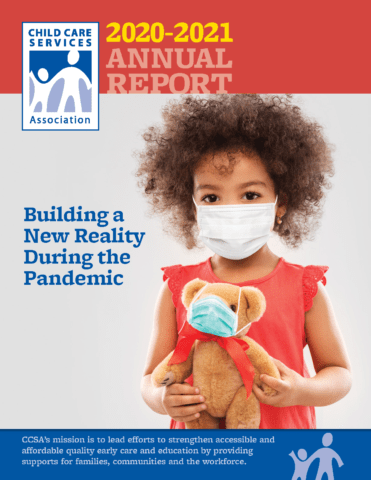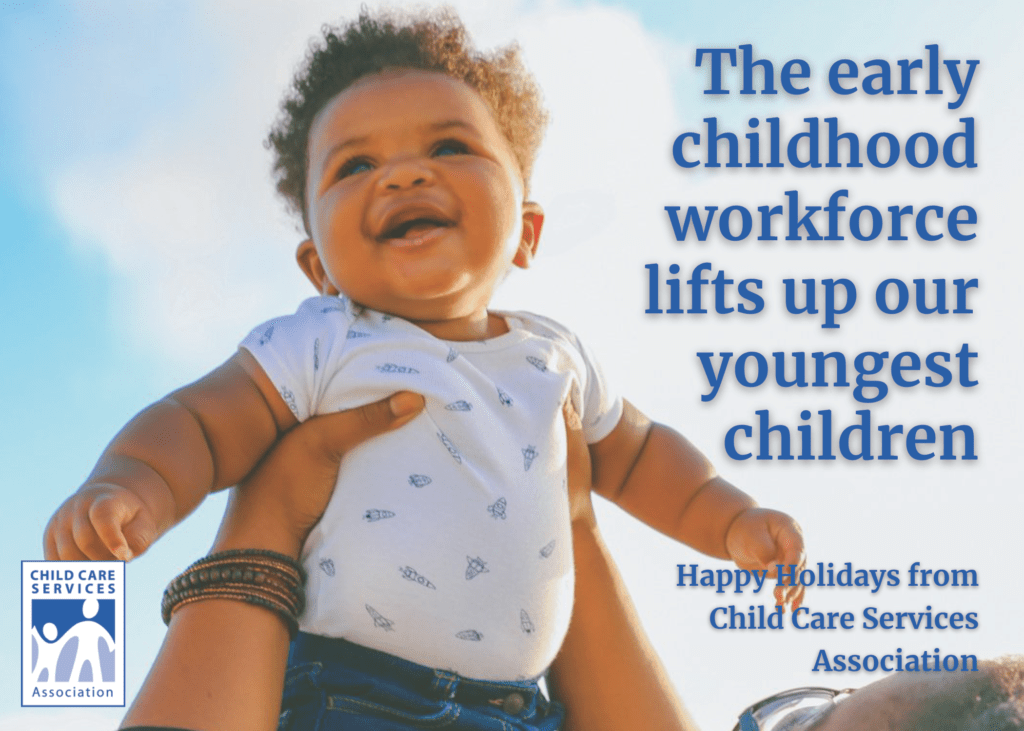As we began 2021, many of us looked forward to turning the corner on the challenges of COVID-19. However, the pandemic still affects all of our lives. It has significantly impacted the early childhood education field in ways that are not currently adequately addressed. Yet we have begun to see some glimmers of hope as we approach the changing of the calendar year.
1. We are celebrating the NC Stabilization Grant investment in early childhood education programs.

First, we are proud of the historic investment of $805 million stabilization grants made possible from the 2021 American Rescue Plan Act into North Carolina’s early care and education field, which will provide working families with access to high-quality, affordable child care and support child care programs as they recruit and retain staff, allowing them to provide better wages and benefits to teachers and promoting equity for all children, parents and teachers. This investment is critical.
As we saw this year, many early childhood educators and family child care providers left the field due to low wages, and the strain on providers is evident as more families move to the Triangle and across the state. We must continue to invest in the workforce behind our workforce so our children are given the best possible start. This federal investment of ARPA funds is a great step toward committing to that future for our educators, our programs and our children.
2. We are still calling for a commitment to worthy wages for educators and providers.
In 2021, economists continued to write about a labor shortage—that challenge is felt nowhere more acutely than in early childhood education. As many businesses raise wages, we are seeing an exodus of workers leaving child care to go to better-paying jobs that have less rigorous demands. Walmart in Raleigh is paying $15.28 per hour for cashiers. Starting pay for Amazon delivery associates in Durham begins at $16.50 per hour. And, Panera in Raleigh offers food discounts, health benefits, 401(k) company match and paid vacations. Compared to the average hourly pay of lead teachers ($12.00/hour), it’s no wonder we are losing qualified workers and facing a shortage.

We are calling for a commitment to elevating child care educator wages that allows our frontline child care providers to thrive, and which in turn allows children to learn and families to recover. We hope someday there will be expansion of Child Care WAGE$® to every county so child care educators can continue their education and receive a more competitive salary. As the Triangle and state attract new businesses and families, we must set up our early childhood field for success as we move forward into 2022 and hope for a stable recovery from the impacts of COVID-19.
3. We hope for the full passage of the Build Back Better legislation.
Our work highlights the importance of providing parents with affordable, accessible and high-quality early childhood programs by providing financial support and counseling for early childhood educators as they advance on a career pathway that leads to quality teaching practices and higher compensation.
The Build Back Better investment was designed to create a historic transformation for children’s development and learning. We hope Congress will work on policies and funding for the future. Children, families and early childhood educators have waited too long for this opportunity.
4. We stand behind a commitment to equity for and within early childhood education.
Our country has continued to fight two pandemics in 2021: the continuing effects of COVID-19 and the systemic racism that challenges the work of child care programs and family child care providers and disproportionately impacts children of color and their families. There is a distinct and stark disparity between the career progression and wages of educators and providers of color, and this must be addressed with resources and systemic change. You can read more about CCSA’s work in this field here.

5. We celebrate the ongoing resilience and efforts of child care providers.
Not only has CCSA continued to work tenaciously through the last 21 months, we are also celebrating supporting thousands of children, families and educators across 24 states and D.C. this fiscal year. Our work, as shown in our annual report, helps thousands of educators to continue to upskill, stay in the field and enhance the quality of early childhood education services here in North Carolina and across the country. Our programs highlight that even with the COVID-19 pandemic, our early childhood programs and family child care home providers are working hard to ensure the future success of our children as they face mounting challenges. It is our hope as we head into 2022 that we see more of this dedication.
Throughout the year, and through the challenges of this pandemic, we are indebted to you for your loyal support, your encouragement and your partnership. Together, we are grateful to celebrate another year of supporting the early childhood education field and look forward to continuing to advance the support educators and providers receive while also supporting families and ensuring our children receive the best care and education in their earliest, most crucial years.




